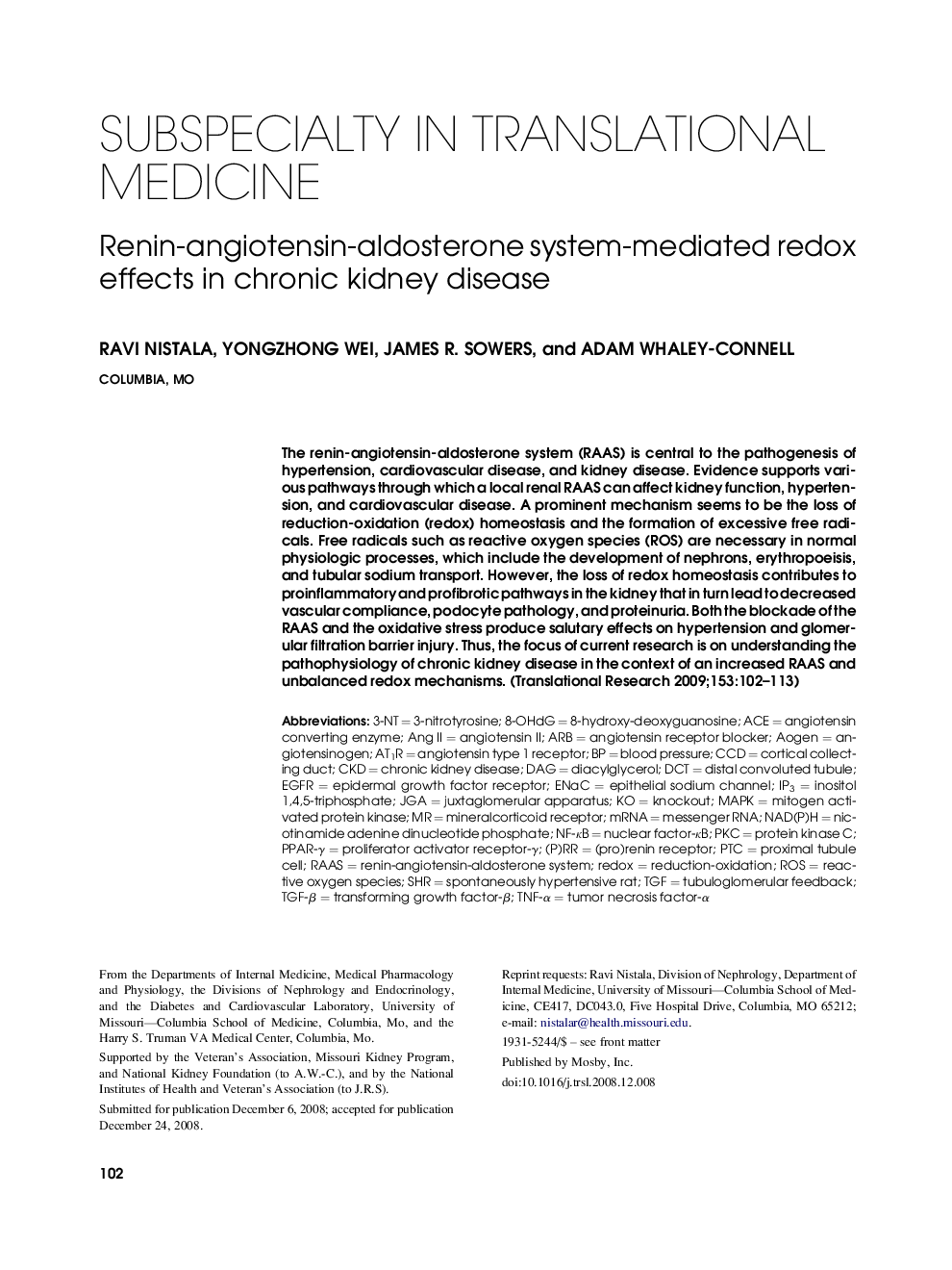| Article ID | Journal | Published Year | Pages | File Type |
|---|---|---|---|---|
| 3841206 | Translational Research | 2009 | 12 Pages |
The renin-angiotensin-aldosterone system (RAAS) is central to the pathogenesis of hypertension, cardiovascular disease, and kidney disease. Evidence supports various pathways through which a local renal RAAS can affect kidney function, hypertension, and cardiovascular disease. A prominent mechanism seems to be the loss of reduction-oxidation (redox) homeostasis and the formation of excessive free radicals. Free radicals such as reactive oxygen species (ROS) are necessary in normal physiologic processes, which include the development of nephrons, erythropoeisis, and tubular sodium transport. However, the loss of redox homeostasis contributes to proinflammatory and profibrotic pathways in the kidney that in turn lead to decreased vascular compliance, podocyte pathology, and proteinuria. Both the blockade of the RAAS and the oxidative stress produce salutary effects on hypertension and glomerular filtration barrier injury. Thus, the focus of current research is on understanding the pathophysiology of chronic kidney disease in the context of an increased RAAS and unbalanced redox mechanisms.
